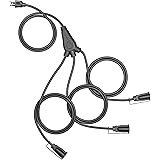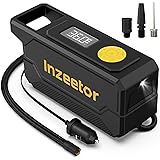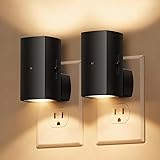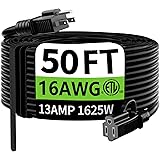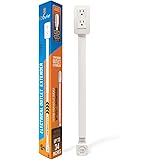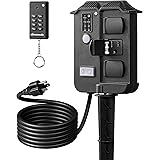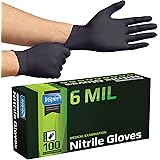Have you ever found yourself miles from home, with a minor bike issue that suddenly feels like a catastrophic breakdown, all because you lacked the right tool? For many cyclists, the appeal of a comprehensive yet compact bicycle tool kit is undeniable, offering peace of mind and the ability to handle common repairs on the go. The video above provides a practical overview of an affordable Nashbar kit, highlighting its contents and value. This article expands on that discussion, delving deeper into the utility of each tool and offering a broader perspective on selecting an essential bike tool kit for the average rider.
Choosing a Compact Bicycle Tool Kit: Value Meets Necessity
The quest for a dependable yet inexpensive bicycle tool kit often leads riders down a path of comparisons and compromises. As was astutely observed in the accompanying video, seemingly identical kits can vary significantly in price. A prime example is the Nashbar kit, priced at a competitive $39.99, which appears to be precisely the same as the Spin Doctor kit, retailing for $49.99. This $10 difference for identical components underscores the importance of diligent research when investing in cycling tools.
For the typical cyclist—be they a mountain biker, road cyclist, or casual rider—a portable kit is not about replacing a fully stocked home workshop, but rather about providing critical functionality in a travel-friendly package. These kits are often considered an excellent entry point for those looking to expand their DIY maintenance capabilities without a substantial initial investment.
Essential Components: What’s Inside a Capable Bike Tool Kit?
A well-curated bicycle tool kit is judged by its ability to address common mechanical issues. The Nashbar kit, as detailed in the video, demonstrates a thoughtful selection of tools. Let us explore some of the key inclusions and their significance:
Bottom Bracket Tools: Modern and Traditional Needs
One of the most valuable inclusions in a modern bike tool kit is the external bearing bottom bracket tool. This specialized wrench is indispensable for servicing or replacing the bottom bracket on virtually all contemporary bicycles, which predominantly feature external bearing designs. The video highlights that a standalone professional-grade equivalent, such as one from Park Tool, can often retail between $15 and $20. The inclusion of this critical tool in an entry-level kit immediately elevates its value proposition.
Furthermore, the kit includes a separate cap removal tool for Shimano bottom brackets, a small but frequently needed item. For older bicycles or specific crankset systems like the Race Face Cinch, a traditional square taper bottom bracket tool is also provided. The versatility to accommodate both modern and classic bottom bracket standards ensures a broad applicability for the average cyclist’s needs.
Drivetrain Dynamics: Cassette, Chain, and Crankset Tools
Maintaining the drivetrain is paramount for smooth cycling performance. The Nashbar kit thoughtfully addresses this with several key tools:
- Cassette Lockring Remover: This tool is essential for removing the cassette from the freehub body, compatible with standard Shimano and non-XD SRAM cassettes. Its presence saves a trip to the bike shop for drivetrain cleaning or cassette replacement. A professional Park Tool equivalent typically costs around $8, adding to the cumulative value of the kit.
- Chain Whip: Used in conjunction with the cassette lockring remover, the chain whip provides the necessary leverage to hold the cassette in place while the lockring is loosened. The kit’s chain whip is noted to be of a quality comparable to, or even superior to, many budget-friendly standalone options available on the market.
- Crank Arm Extractor: For those with square taper cranksets, this tool is vital for safely removing the crank arms from the bottom bracket spindle. While the kit’s version might feel less robust than premium options, it is generally sufficient for occasional use, provided the crank arms are not seized. It features a reversible design, allowing for use on both square taper and, with an adapter, on some modern external bearing cranks.
- Chain Tool (Chain Breaker): This small but mighty tool allows for the removal and installation of chain links, crucial for chain replacement or repair. A standalone chain tool can range from $6 to $7, making its inclusion another thoughtful touch.
- Chainring Nut Wrench: A less common but occasionally needed tool, this is used to hold the chainring nuts in place when tightening or loosening the chainring bolts. It prevents the nuts from spinning freely, simplifying chainring maintenance.
Wheel & Pedal Maintenance: Cone Wrenches and Pedal Wrenches
The kit also attends to other crucial aspects of bicycle maintenance:
- Cone Wrenches: Critical for adjusting or servicing hub bearings, these thin wrenches (typically 14-16mm and 15-13mm in the kit) are designed to fit into narrow spaces. While the kit’s stamped steel versions might not inspire the same confidence as a 20-year-old Park Tool equivalent, they are generally functional for the occasional adjustment.
- Pedal Wrench: A 15mm pedal wrench is included, a size standard for most bicycle pedals. The Nashbar kit’s pedal wrench also features a 14mm option on the reverse side, increasing its utility. As noted, a dedicated pedal wrench from a premium brand can cost nearly $30, underscoring the significant savings offered by the kit’s inclusion.
General Purpose Tools: Hex Keys, Torx, and Screwdrivers
No tool kit would be complete without a selection of general-purpose fasteners. The Nashbar kit includes:
- Hex Keys (Allen Keys): A comprehensive set ranging from 2mm to 6mm, covering the most common bolt sizes found on bicycles (e.g., stem bolts, seatpost clamps, brake levers).
- T25 Torx Wrench: This specific Torx size is increasingly common on modern bikes, particularly for disc brake rotors and some component mounting bolts. Its inclusion is a sign of a kit designed for contemporary bicycles.
- Phillips and Flathead Screwdrivers: Essential for adjusting derailleur limit screws, fender mounts, or other accessories.
Convenience and Portability
Beyond the individual tools, the thoughtful design of the carrying case cannot be overlooked. A compact case that securely holds each tool in place, preventing rattling or loss, is invaluable for travel. The ability to simply “throw this little guy in the back” of a car or luggage for a cycling trip simplifies preparation and ensures that essential tools are always on hand.
Limitations and Enhancements
While the Nashbar kit offers exceptional value and covers a broad spectrum of common repairs, it is important to acknowledge its limitations. As mentioned in the video, it typically does not include items such as wire cutters (for cables and housing) or a quick link plier (for chain quick links). These are often considered secondary but highly useful additions for a more complete travel setup.
For those seeking to augment the kit, the compatibility of its tool slots with premium alternatives is a significant advantage. Should a specific tool wear out or prove insufficient for heavy-duty tasks, a higher-quality replacement (e.g., a Park Tool cassette remover or a Lifu bottom bracket tool, as mentioned in the video) can often be snapped directly into the case, maintaining the kit’s organized and compact nature.
Ultimately, for the average cyclist or even the budding home mechanic, an inexpensive bicycle tool kit like the Nashbar offering presents a compelling solution. Its comprehensive array of essential tools, thoughtful case design, and remarkable price point of $39.99 make it a standout choice for those prioritizing readiness and value in their cycling endeavors.



